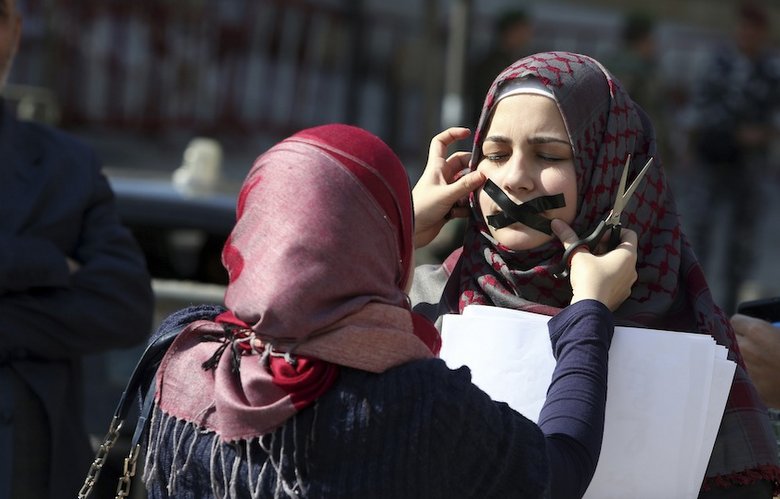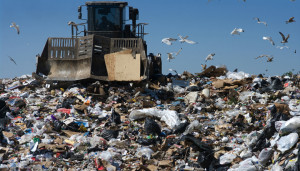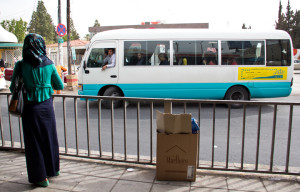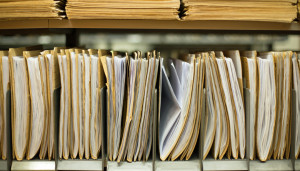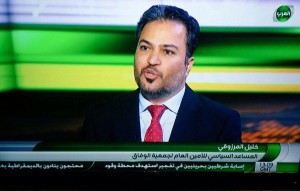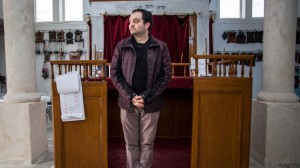As Arabic language study becomes more critical to international affairs, there are becoming fewer places for foreigners to study as the Arab region currently rocks with violence and uncertainty. American journalism student Emily Creasia, also an Arabic language student herself, finds out how programs are faring in Jordan.
[audio:https://www.7iber.com/wp-content/uploads/Arabic-students-story-mixdown.mp3|titles=Studying Arabic in Jordan]
SCRIPT
“They evacuated us, our apartments were on a major square meeting place for the protests, there were gun fights on our streets at night and general violence. After Egypt they evacuated us to Greece and we had to choose between Morocco, or Jordan, or go back to the States.” :18 Lauren Kardos
Lauren Kardos chose to come to Jordan. She studies Arabic in Amman now after the program she was in, AMIDEAST, was closed in Cairo this February. Kardos is a 20-year-old American student at George Washington University double majoring in international affairs and Middle Eastern Studies. (*nat sound transition to Univ of Jordan) At the University of Jordan, Tawfiq Omar, the international students advisor, says that they are also seeing more students come to Jordan to study Arabic. The numbers have increased from 230 last summer to about 250 this summer.
“They come to Jordan because probably the situation in these countries, they’re not going there anymore, because of security reasons and stuff. So they prefer and choose a secure country to go and study Arabic, because this is important especially when you’re learning a language.” :19 Tawfiq Omar
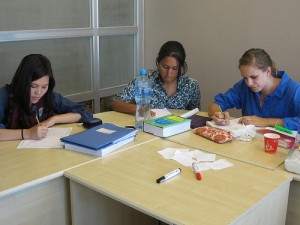 The US Critical Language Scholarship Program in Amman has also seen an increase after both their Alexandria and Cairo sites were shut down in March. CLS Program Director Sarah Harpending says the numbers went from 37 in Amman last summer to 56 this summer.
The US Critical Language Scholarship Program in Amman has also seen an increase after both their Alexandria and Cairo sites were shut down in March. CLS Program Director Sarah Harpending says the numbers went from 37 in Amman last summer to 56 this summer.
“In Jordan, we certainly saw these problems in Tunisia and then Egypt, and we wondered if CLS Arabic would continue at all. I mean obviously if the whole region had fully embraced the Arab Spring, there would be even fewer programs going on. But I think that we kind of anticipated that Jordan would remain stable and go ahead.” :24 Sarah Harpending
Back at AMIDEAST, Program Manager Hala Qubein says even though their offices in Egypt were closed, Arabic learning continues in places like Jordan.
“There are people who kind of put all Middle Eastern countries together and those are the people who say ‘there’s a revolution in Egypt, we won’t send our kids to Jordan’. But there are quite a few people who know the differences between the countries and can make an educated decision, on ‘ok, I can’t go to Cairo, but I can go to Amman’. And I think the students here are definitely safe, I mean it’s stable in Jordan otherwise we wouldn’t be running our program.” :23 Hala Qubein
Lauren Kardos says her time in Egypt and Jordan has significantly impacted her perspective.
“Just it’s been an immensely life-changing experience, and just made me inseparable from this area, half of my life is here now, that’s just how it is.” :12 Kardos
Kardos says one day perhaps she’ll work for some sort of non-profit in this region, as long as she can continue to work with people in the Middle East. For now, she stays in Jordan. Emily Creasia, reporting.




